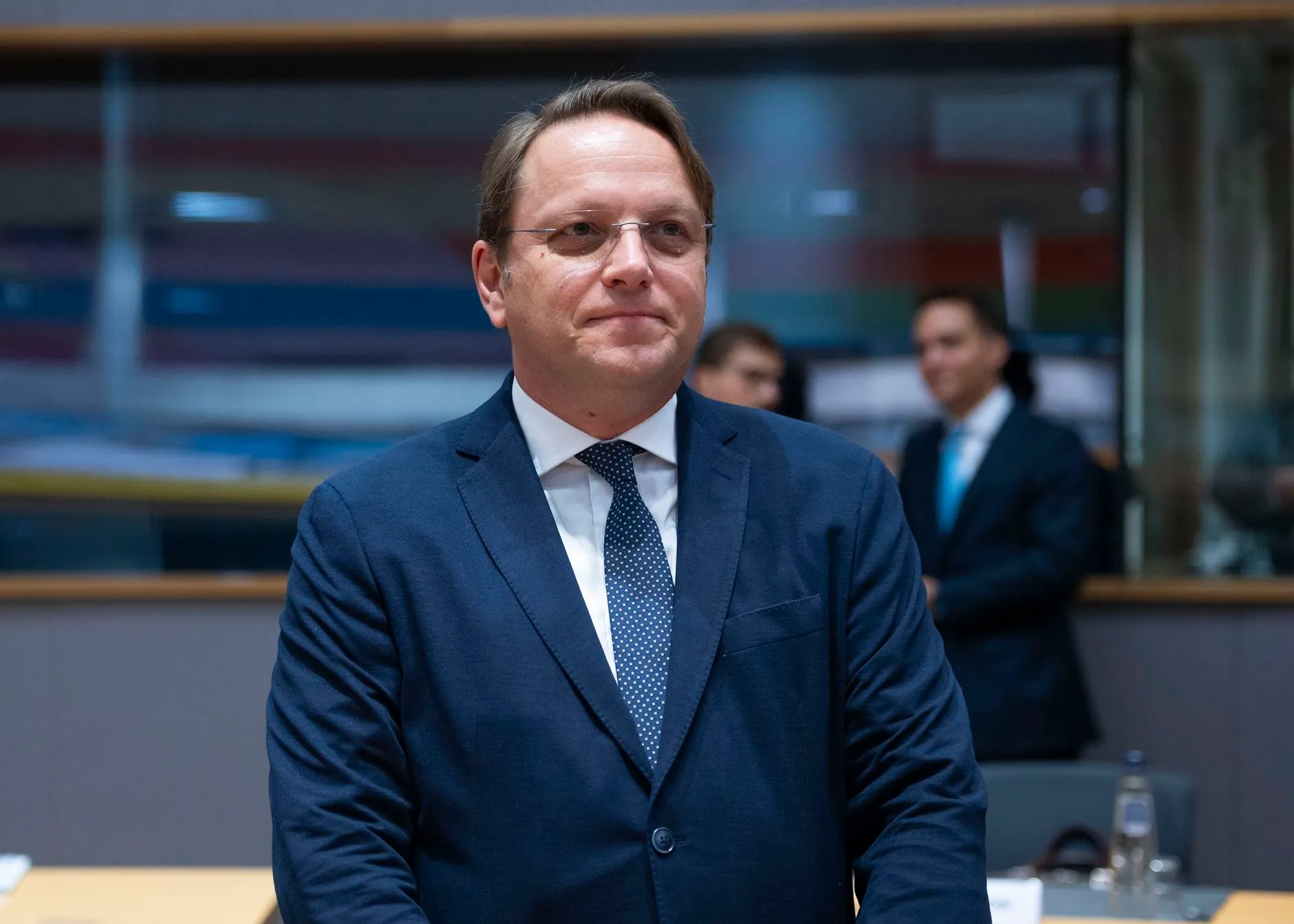Change language:
EC President von der Leyen nominates Hungarian Commissioner to a weak position – UPDATED
European Commission President Ursula von der Leyen has nominated Hungary’s Olivér Várhelyi for the post of European Commissioner for Health and Animal Welfare.
Unveiling her new leadership team at a press conference held on the sidelines of an EP plenary session on Tuesday, von der Leyen said Várhelyi would be responsible for building a common European health-care union and would be tasked with leading the work on beating cancer and disease prevention.
Várhelyi served as Commissioner for Neighbourhood and Enlargement in the previous commission.

Várhelyi said on social media that he was “honoured to be nominated”, adding that the nomination recognised “the excellence of Hungarian medical professionals from Semmeilweis to Szent-Gyorgyi or Katalin Kariko and many others”.
“The task of representing that excellence with integrity is enormous,” he said.
Varhelyi served as Commissioner for Neighbourhood and Enlargement in the previous commission.
Orbán cabinet ploughs euro billions into healthcare sector since 2010
The government has spent around HUF 30,000bn on healthcare since coming to power in 2010, Finance Minister Mihály Varga said on Tuesday, at the inauguration of a trauma centre at a big hospital in Budapest.
Varga said the government had allocated resources for infrastructure developments, pay rises for doctors and nurses, and investments in healthcare industry manufacturing, putting the sector “back on its feet”. He added that HUF 3,200bn had been earmarked for healthcare in this year’s budget, HUF 2,000bn more than in the 2010 budget.
In spite of a government decision to postpone HUF 675bn of projects, the government will plough about HUF 2,000bn into investments this year, Varga said.
He noted that GDP growth reached 1.5pc in the first half and said the government counted on the economy expanding 3-3.5pc for the full year. The government is working to boost growth over that, and healthcare investments can help, he added.
Péter Takaás, the state secretary for healthcare, noted that HUF 133bn in government funding had been channeled to the Healthy Budapest Programme. That funding was complemented with close to HUF 100bn for hospital renovations during the pandemic, he added.
Zsolt Ralovich, the director of Saint John’s Hospital, where the investment was made, said the trauma department there had taken in over 60,000 patients last year.
Europe needs competitiveness ‘turnaround’
Culture and Innovation Minister Balázs Hankó said Europe needed a “competitiveness turnaround” in remarks ahead of an informal meeting of European Union higher education and research ministers in Budapest on Tuesday.
Hankó noted that Europe’s productivity rate had stood at 95pc of the United States’ in 1995, but had since fallen to 80pc. He added that the EU’s scientific output had fallen by 8pc in the past decades and was now lagging behind that of China and the US.
Of the world’s 50 biggest technology companies, just four are in the EU, he said, adding that the share of global venture capital in the EU stood at 5pc, compared to the 50pc in the US.
In order to advance the competitiveness turnaround, fragmentation of research networks must be reduced, he said. Regional disparities with regard to R+D funding should be eliminated, he added, pointing out that just 8pc of R+D funding went to Central Europe, while the region was home to 24pc of the EU population.
Hankó held up Hungary’s higher education model as an example for the EU and said the adoption of that model had resulted in doubled numbers of PhD students and researchers and triple the volume of innovation resources.
Nobel Prize-winning Hungarian physicist Ferenc Krausz’s thoughts
Ferenc Krausz, the Nobel Prize-winning Hungarian physicist, gave a presentation to the participants in which he pointed out that early detection of disease could not only extend lives, but strengthen competitiveness by ensuring a bigger pool of economically active people. He added that cheaper, more cost-effective healthcare was necessary to save more lives and advance competitiveness.
He said that research and innovation were fundamental forces behind the EU’s economy and competitiveness, and pointed to the work of the Center for Molecular Fingerprinting (CMF), established in Budapest in 2019, to shape the future of healthcare.
Read also:
- Over 1,000-year-old authentic image of Saint Stephen, Hungary’s founder, on an unexpected relic – read more HERE
- Hungarian astronomer discovers previously unknown near-Earth asteroids
- How medieval Hungarian villages looked before the Ottoman occupation: A digital reconstruction








Refuse the job. If you take the job, next time Ursula will put a Hungarian rep to clean the streets of Brussels.
None of these people has been elected into their position by the European peoples. Not a single one.
The E.U. is looking more like the CCCP by the day… – except, even the Politburo had more legitimacy than these clowns.